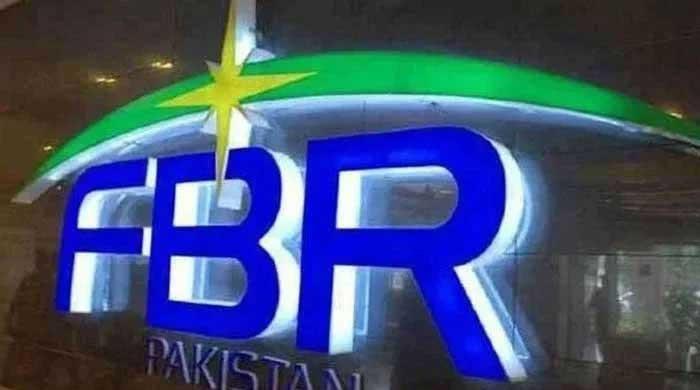- Govt Mulls, which reduces FBR’s tax target to RS13.7TR from RS14.13 tr.
- Reduction of the tax target by RS300-500 billion For FY26 possible.
- Flooding tax to be imposed on sectors with high net worth, individuals.
Islamabad: After losing the deadline to privatize Pakistan International Airlines (PIA), the government is preparing various scenarios to revise the federal agency of revenue’s (FBR) Tax Charging Goals in the RS300 Billion area for RS500 billion for the current financial year, The news Reported Thursday.
On the one hand, there is an opportunity to reduce FBR’s annual tax collection target from RS14.13 trillion to RS13.7 trillion or RS13.9 trillion taking into account the potential revision in the macroeconomic framework.
There is another proposal on the cards because of beating a flood tax to generate the resources for utilizing funds for rehabilitation and reconstruction efforts.
The government ends the exact details of the proposed flood tax, which is expected to be imposed on sectors and individuals with high net worth.
According to the first estimates prepared for flood damage, the country’s largest crops, such as rice, sugar cane and cotton, are expected to have losses of 15%, 5.7%and 10%respectively.
The cattle have also been exposed to loss. This will result in a revision in the real GDP growth target from 4.2% to approx. 3%. CPI-based inflation is also expected to rise from the 5-7% area to 8%.
When it was contacted, a senior official said FBR’s revenue may face revenue losses in the first half (July-December) period to the tune of RS300 billion. The losses incurred by the agricultural sector can be a mother in the yard’s purchasing power, so there are estimates to damage the collection of VAT.
But the independent tax experts fear that the loss of income may go close to RS500 billion for the current financial year.
FBR-HEEPS claimed that the loss of income would start to recover in the second half (January-June) period because the remaining crops, such as wheat, possibly obtained better yields.
On the privatization front, the government has missed the deadline for privatization of the Pia transaction by August 2025.
The privatization of First Women’s Bank and HBFC transactions by May 2025.
A financial advisor has been hired to privatization of three batch distribution companies (IESCO, FESCO, GEPCO) and the Due Diligence page are currently taking bids targeting December 2025.
The government is now targeting a third bank, ZTBL, for privatization at the end of this year, aiming to initiate the process of hiring a financial advisor to privatization of batch II discos (Hesco, Sepco, Pesco) at the end of April 2025, but this could not be achieved.
The government wants to move towards Genco privatization with the bid for Nandipur, which is targeting January 2026. The transaction structure for Roosevelt Hotel is still underway.
The government aims to continue to prioritize the privatization of commercial state-owned companies (SOEs) with the highest priority on profitable commercial SOEs and supported by the end of SOE privacy classification to reduce the government’s commercial footprints and attract investments that could contribute to Pakistan’s development.
These efforts should be supported by basic structural reforms to restore the electricity sector to viability.
The most important measures include continued progress with disco -privatization and/or moving against private concessions to improve disco performance and services; sustained efforts to change captivity to the electricity grid; Complete the restructuring of National Transmission Dispatch Company to improve efficiency; privatizing ineffective public generational companies; and make further gradual progress towards a competitive electricity market.
The Pakistani authorities have committed to ensuring that the implementation of these reforms will bring the flow of any new circular debt (CD) to zero of FY31 (when the above -mentioned stock operation ends) at the latest.



